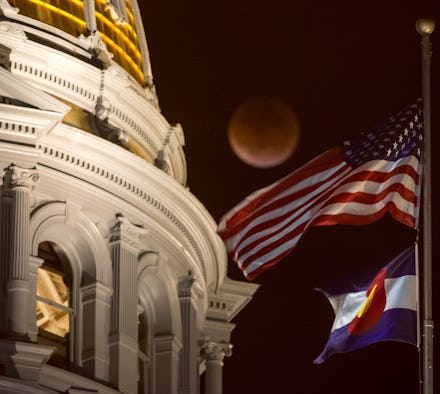Congress' New Budget for NASA Is Huge — And Secretly Contains Hated Spying Bill CISA

The bill about to pass through Congress is one small step for NASA, and one giant leap for the surveillance state.
In the newest version of the "omnibus" spending bill, the yearly legislation that passes enormous federal budget guidelines, NASA has been allocated $19.3 billion, a whole $1.27 billion more than the Obama administration asked for. This will allow NASA to fund its missions, ferry people between Earth and the International Space Station and continue to sever its dependence on Russian funds by shoring up its commercial crew program.
For people who love science and technology, it would be a resounding victory — but Congress is determined to break those people's hearts and poison their punchbowl. Legislators slipped CISA, a privacy bill that's been fought and rejected by advocates and legislators for years, into that same budget bill.
"CISA's not preventing attacks, it's allowing the government as an excuse to collect more data."
CISA is meant to be a cybersecurity bill, allowing companies like Facebook, Verizon and Google to work with the government's security agencies to mitigate damage after a breach. But because the bill offers vast immunities to these companies for handing over user data, many see it as not a security bill, but a surveillance measure.
"CISA's not preventing attacks, it's allowing the government an excuse to collect more data," Evan Greer, campaign director of Fight for the Future, told Mic back when CISA passed through the Senate.
This version of CISA is even worse for privacy. The CISA that made it into the omnibus bill is even more explicitly surveillance-focused and pervasive than previous versions. Legislators stripped away the parts of the bill that prevent the National Security Agency from using the information handed over for surveillance purposes, and most alarmingly, they've removed the language that says companies have to scrub and anonymize the data handed over to protect their users from government overreach.
But at least one piece of anti-open-internet legislation didn't make the final omnibus: Initially, there were plans to include anti-net neutrality riders that would handicap the Federal Communications Commission's ability to regulate internet providers, but those riders aren't included in the omnibus, which is expected to come up for a vote on Friday.
Somehow, the victory for NASA doesn't seem so sweet.